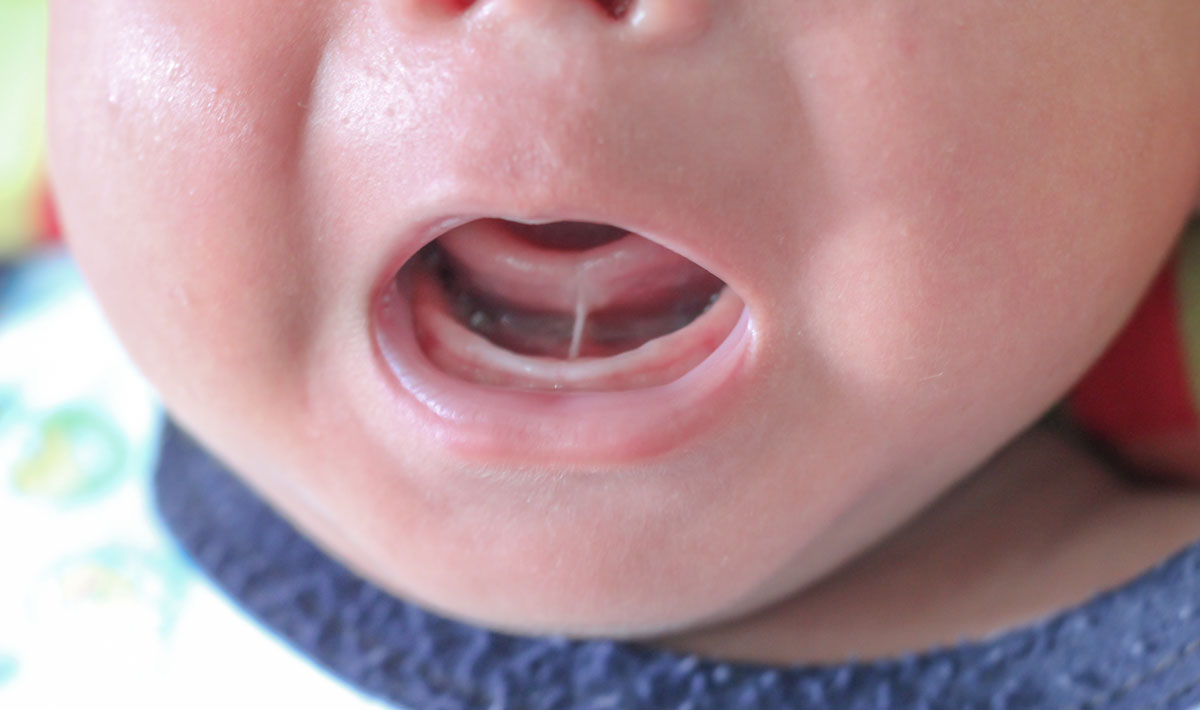Lip and Tongue Ties
Ankyloglossia, also known as tongue tie, is a congenital condition that can affect infants and children due to having a short lingual frenulum that restricts tongue movement and impacts the function of the tongue. The incidence of tongue tie affects at least 4%-10% of infants and is most commonly diagnosed in males. Around 50% of infants with ankyloglossia experience feeding difficulties because of the condition.
There is also such a thing as a lip tie. Babies who have lip ties almost always also have tongue ties. Lip and tongue ties can affect a babies’ ability to breastfeed, or even take a bottle or a pacifier. They can also affect an older child’s ability to chew, swallow, breathe, and speak. Tongues and lips are only considered tied if their movement is restricted thereby impairing mobility and function.
There has been a tremendous amount of new information from research studies in the last ten years about lip and tongue ties and their affects on breastfeeding, breathing, eating, chewing, swallowing, speech, and even sleep.
What are some lip and tongue tie symptoms?
What are lip and tongue tie symptoms that a mother may feel while nursing?
Treating Tongue and Lip Ties
If you suspect that your baby or child has a lip or tongue tie, you will want to get it evaluated. A Speech Language Pathologist trained in Orofacial Myofunctional Disorders (OMD’s) can help. Speech Language Pathologists trained in OMD’s can treat lip and tongue ties with exercises and follow up treatment after surgery. SLP’s can also help to establish and re-establish muscle patterns affected by lip and tongue ties.
After a diagnosis has been made, there are multiple treatment options for families to consider. Treatment options include a SLP, IBCLC (lactation consultant), Bodyworker (Craniosacral Therapy) and/or surgery via a Dentist.
New Beginnings has Orofacial Myofunctional Therapy at both locations. When you call to make an appointment, please tell the Office Manager that you are interested in a Lip or Tongue Tie evaluation because this is a specialized service.
Meet Our Qualified Staff
Monica Tullius
M.S. CCC-SLP
Speech-Language Pathologist
Orofacial Myofunctional Therapist
A licensed Speech-Language Pathologist for over 30 years, Monica has been in private practice for the last 16 years. She is the Clinical Administrator and Owner of the New Beginnings Pediatric Speech Therapy Services, PLLC clinics where she supervises and leads a team of Speech Pathology Clinicians.
Prior to opening her private practice, Monica was a Speech-Language Pathologist in the public school system for many years. She also has experience in pediatric Speech Therapy in home health, charter schools, and private schools. She has worked with children with an array of needs, such as: Autism Spectrum, Language Disorder, Augmentative Communication, Voice Disorder, Orofacial Myofunctional Disorder, Cerebral Palsy, Articulation Disorder, Learning Disability, Intellectual Disability, Down Syndrome, Stuttering, Hearing/Visual Impairment, and Attention Deficit Disorder (ADD/ADHD).
She loves changing the lives of her patients! Monica received her Orofacial Myofunctional training through the Academy of Orofacial Myofunctional Therapy (AOMT).
Monica is an active Member of the American Speech-Language Hearing Association (ASHA), Texas Speech Language Hearing Association, and a Member of the Academy of Applied Myofunctional Sciences (AAMS). She is a past Secretary of the EI Paso Speech and Hearing Association (EPSHA).
Christine Ramirez Adame
M.S. CCC-SLP
Speech-Language Pathologist
Orofacial Myofunctional Therapist
Christine is a bilingual Certified Speech-Language Pathologist who is compassionate and shows caring for each one of her patients. Before coming to New Beginnings and serving as our Rich Beem Clinic Director, she worked for the Texas Department of Family and Protective Services.
She is very interested in Tethered Oral Tissues (TOT’s) and the problems they can cause for posture,
Christine is interested in advancing her knowledge of sleep and OMD’s to better help children and parents who may not even realize that TOT’s may negatively affect the entire body system. She is a member of the Academy of Applied Myofunctional Sciences (AAMS).
Memberships/Certifications

Memberships/Certifications

Changing Lives is Our Mission
Offering children a New Beginning and a brighter future.









